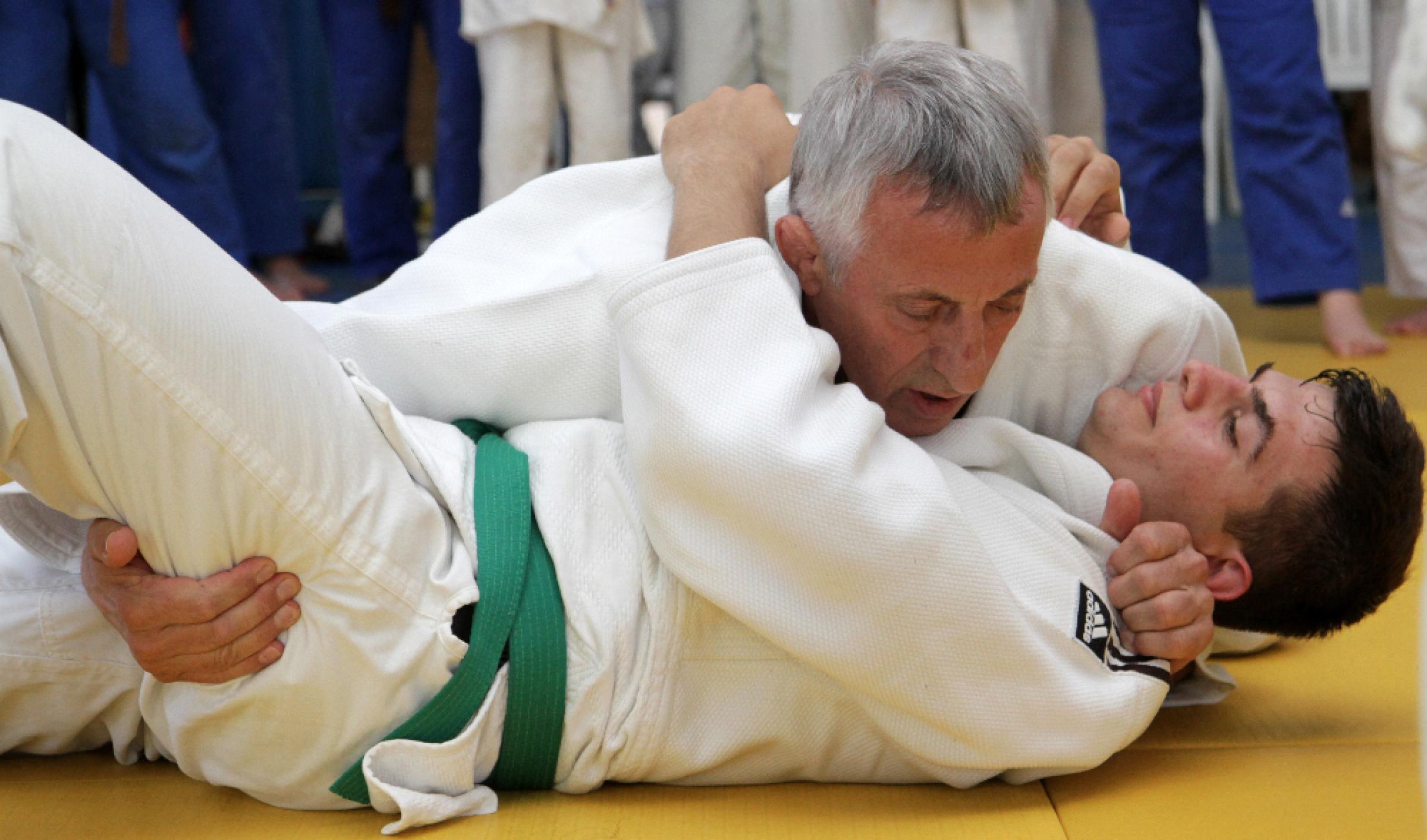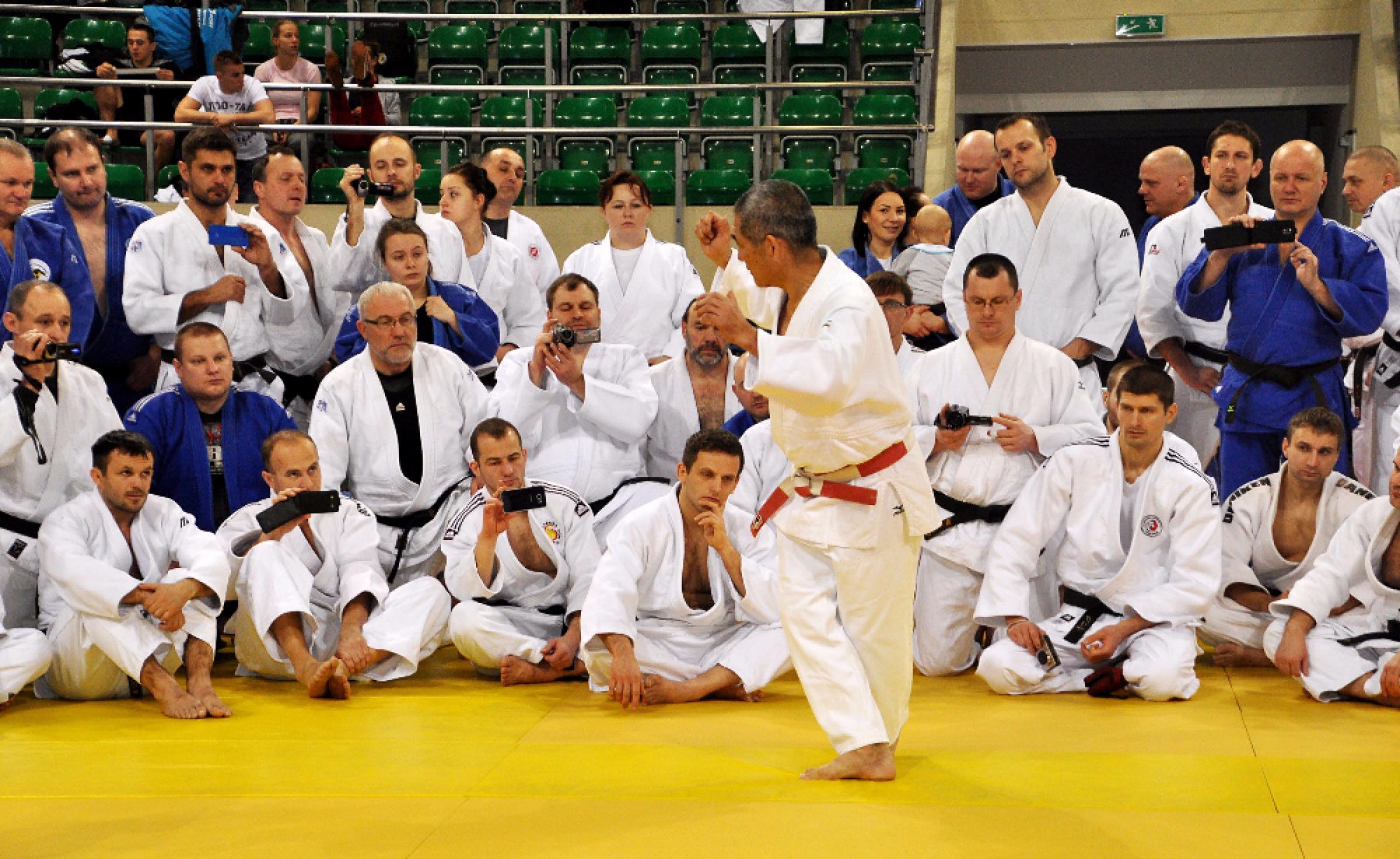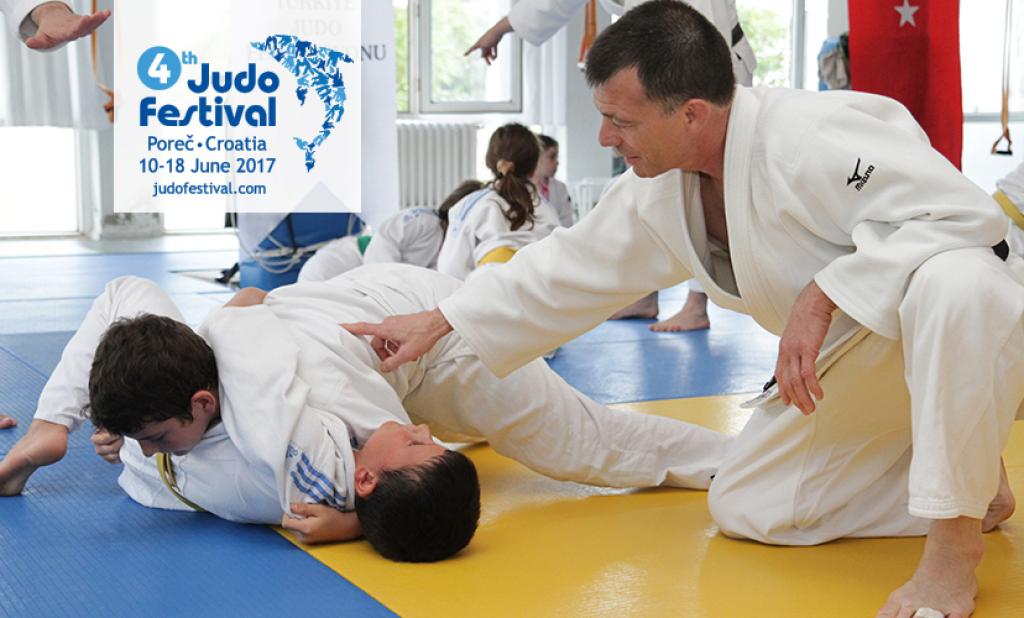The beginning of the 4th Judo Festival is going to be dedicated to Improve Your Club seminar (10 – 12 June). EJU Experts, Patrick Roux and Jean-Pierre Gibert will lead the two-day seminar with two sessions a day; two hours in the morning and two hours in the afternoon. They will teach judo coaches for technical development when teaching young judoka aged 8 – 12 years.

The role of the club coach is as important as of the national coach. In cooperation with the Education Department of the EJU, the Experts Commission has developed a unique educational system to help form and educate club coaches at grass roots level. The development of the strategy and content for this project started in 2013 with the aim to share knowledge with the club coaches of the European countries whom are teaching judo to 8 -12-year-old. The main objective of the Experts Commission is to ensure that club coaches are able to:
- Teach judo techniques and judo values to children
- Motive children to continue to practice judo for a long time and follow a competition pathway for those who want to.
In the last years the EJU organised more than 40 Seminars with over 4.000 participants across 15 different countries.
The seminar in Porec is the first Improve Your Club held in Croatia. All coaches from Croatia as well as from neighbouring countries are cordially invited. There is no better place to combine Judo and holiday than during the Judo Festival.
To have a better understanding, EJU Expert, Patrick Roux shared a moment to explain about the seminar in further depth.
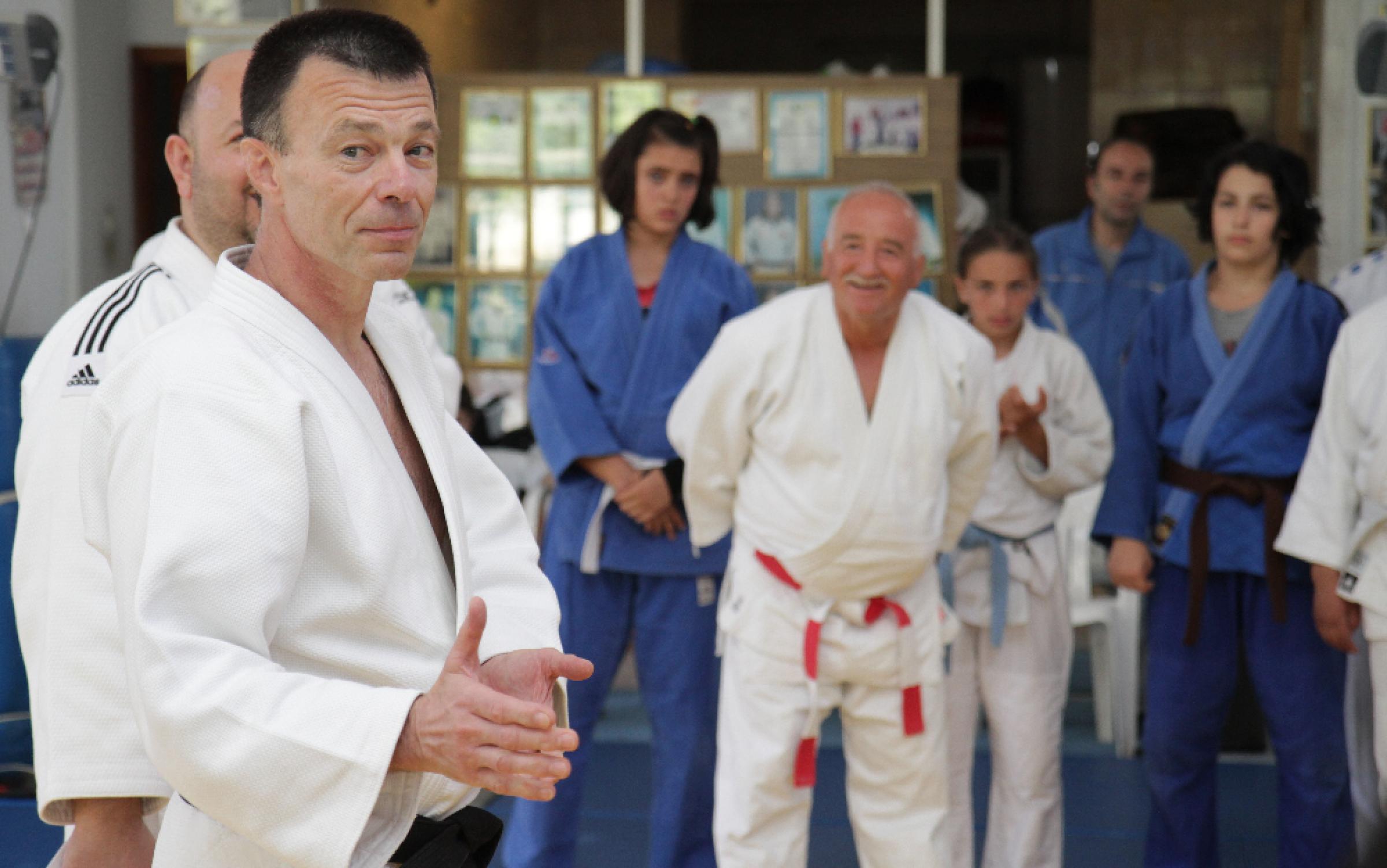
INTERVIEW WITH PATRICK ROUX
Where is the uniqueness coming from? We have a didactic and pedagogic approach. Before starting, Ezio GAMBA through the EJU expert commission brought a lot of international experts together. It was the first year of the plan. Experts from all the judo world, from Japan, France, Brasil, Germany, Nederland, Great Britain, Sweden, Russia, Italia, USA, etc., went to work together to exchange knowledge and experiences. Key persons as Ezio Gamba, Hiroshi Katanishi, Didier Janicot, Jane Bridge, Hirotaka Hokada, Mikihiro Mukai, who had a long experience in coaching at different level and with different age groups, were instrumental in this round of seminars. What is the difference in compare to any other coaching seminars? This is not like a seminar where a champion or an expert show his best technique. This is to analyse and to reflect with our expert team and the club coaches on how we can improve the education and the technical development of our young players. So, like mentioned, this is all about didactic and pedagogy and the methodology to deliver the best content. For example, during the seminars with the club coaches we want to illustrate how it is possible to deliver progressive drills and exercises to learn a throwing technique, starting from basic targets and fundamentals as security (ukemi), dynamic posture (shizen tai), moving (timing/distance/shintai tai sabaki), preparation phase (Kuzushi – Tsukuri), etc. We think that it is possible to deliver these fundamentals through a more accessible way and we propose to do it with a large variety of exercises and situations which make the teaching and the training more fun and more dynamic. This period of time is considered as the gold period for the development of the coordination (not only in judo). This is not yet the time for specialization. This the time to experience many movements, situations, balance exercises, to stimulate and develop reflex and proprioceptive qualities, orientation, space awareness and so on. Later on, the judo skills of the champions will be the result of the complex combinations of all these qualities. Usually we say it is about coordination, but this is a very generic term. The reality is more complex. The Improve your club EJU project emphasize the 8 to 12 teaching, learning, training period because it will offer the best chance for the young players with high potential to build strong foundations, to avoid early specialization, and to reach their best level (pick of career) in senior time when the target will be to perform at the Olympics. What of those not thinking of Olympics? Not everybody wants to become a champion and we think that to retain the majority of the judokas who are practicing judo for the fun of the practice itself, for health, for a holistic approach this is also the best strategy to get a good understanding of the judo basic techniques and principles. If you replace judo by music, and maybe you do not have time to become a professional musician, even so when you play twice a week with your friends you want to play good music. If the sound of what you are playing is rubbish, probably you will not continue to play. But if you get a good feeling playing with others, even if you are not a professional, it will reinforce your self-esteem. You will get satisfaction through the practice and it will be a lot of fun to share this time with others. All depends on your basic education, and of course it is better if you learn the basics and fundamentals when you are young (8 – 12 even 15). Where did you gain your outstanding skills to be specialised for this age group? Personally, I started to teach judo at club level when I was 20 or 21 years old. At the time, I was studying Physical Education and I passed my judo coaching qualification in France (Brevet d’Etat). From that time, and even during my competition time I was always teaching and coaching at club level. Later on, I was in charge of the junior national team in France (1990 – 1998) and then I moved to the coaching education department, where I had a career until 2008. At that time, with Didier Janicot, we developed massively on seminars, the teaching and the pedagogic method in France. This was the same period where we met Mr. Katanishi who is a great master by the way. He helped us to improve our vision and our knowledge because his experience in judo is huge and fantastic; and he very much likes to share his knowledge. What is your view about balancing practical exercises and pedagogical training in this seminar? We want to deliver our pedagogical experience and knowledge through concrete and physical exercises. From our previous experiences, we think it is the best and most effective way to improve the coaching and the teaching method. This is very important for the coaches to experience physically the content, the exercises, the pedagogic situations themselves. It is not about performance. As a coach, sometimes you can teach or transfer some skills and principles that you cannot perform correctly yourself. Because you got an understanding of the key points, and also because you took a time to analyse and to try concretely on the tatami with a partner, as a judo player. Of course, when you get the support of different experts as a coach, it can accelerate your understanding and you will feel more confident that you are able to deliver the technical content. The 4th edition of the Judo Festival will take place from the 10-18 of June 2017. The festival is a magnificent opportunity to spend time with the family, whilst each family member given the opportunity to choose an activity best suited for themselves, yet, at the same time, remain together in one big close-friendly Judo Family; because “Judo is more than sport!” Further information about the festival can be found on our festival page. 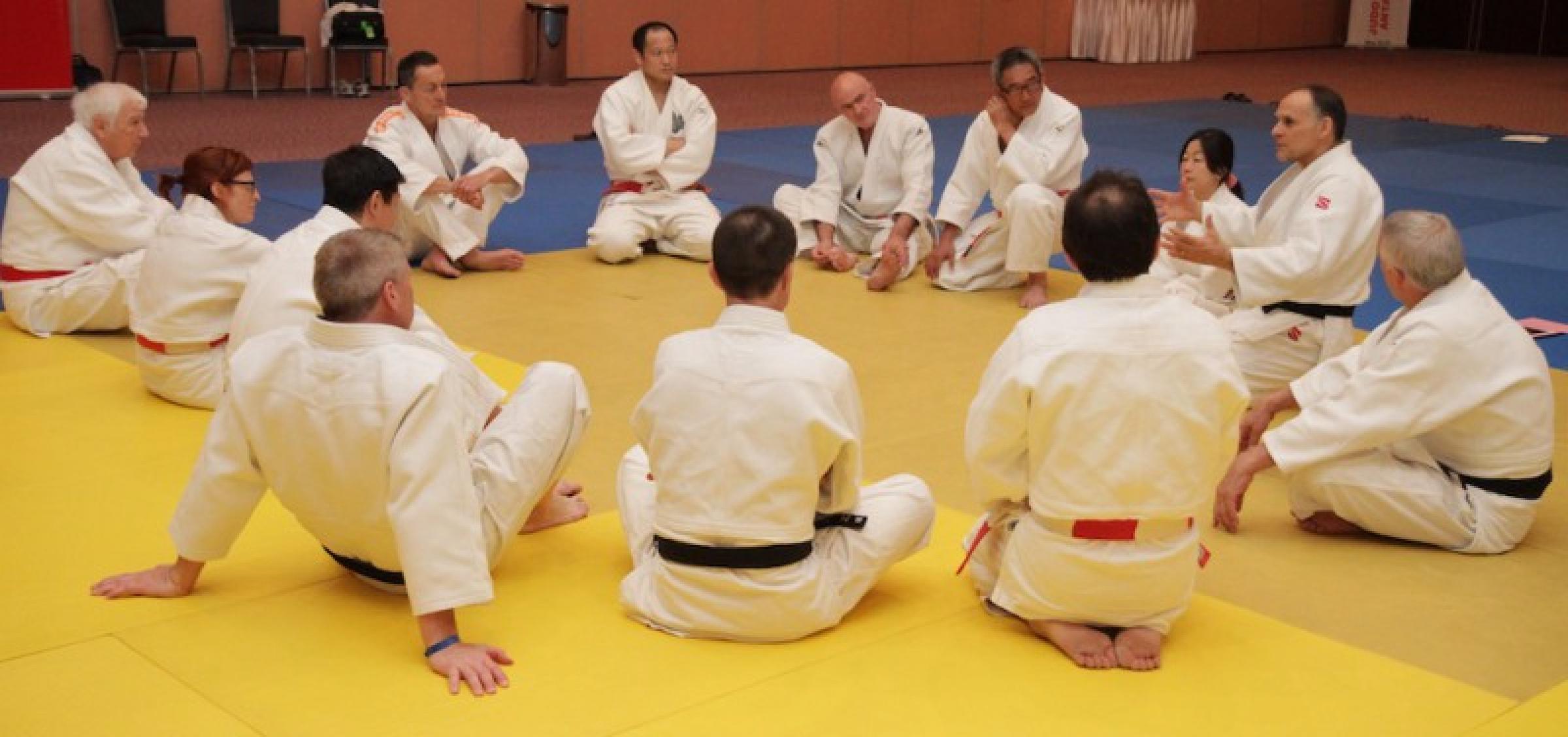
The target group is 8 – 12-year-old. What is eccentric amongst this age group?
